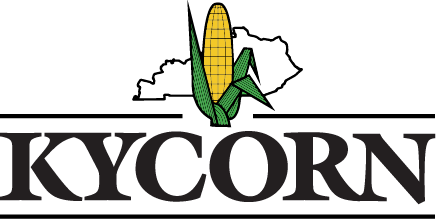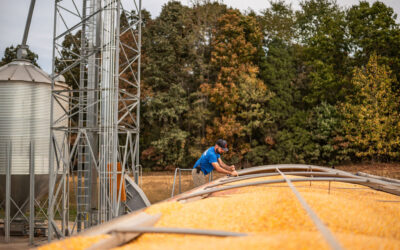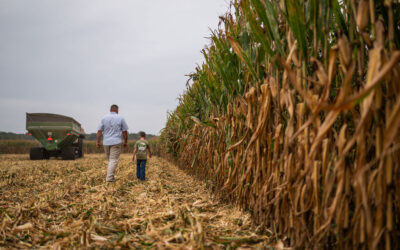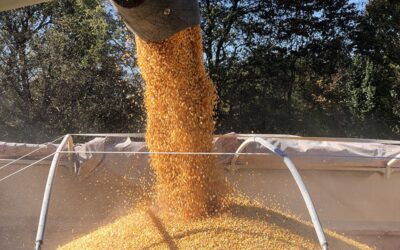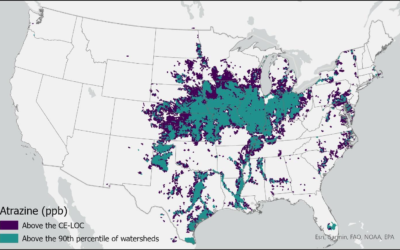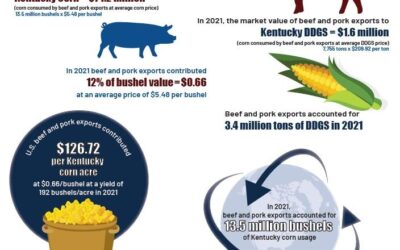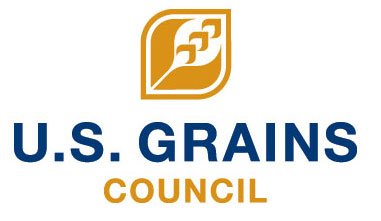News and Resources.
Blog
CORE Program Continues Strong with Graduations, Alumni Events and Plans for Class 7
For nearly 20 years, the CORE Program has been committed to investing in farmers at critical stages in their careers by enhancing knowledge and creating robust peer networks for farmers, especially those who are on the cusp of beginning their careers. Class 6 recently celebrated their completion of the program in Bowling Green during their seventh and final session.
Kentucky Corn Growers Achieve Major Ethanol Priority for 2024
EPA announced a decision to utilize its authority to allow consumers to maintain access to E15 throughout the 2024 summer driving season.
A Washington Filled with High Drama and Palace Intrigue
Plots have thickened. Majorities have shrunk. The knives are out. It’s April in Washington but you would be forgiven for thinking it’s the Ides of March.
From Guatemala to Thailand: Kentucky Corn Producers Connect Globally on Sustainability
Kentucky corn producers connect globally to advance local corn production and sustainable farming practices.
Corn Demand Takes a Hit in EPA’s New Tailpipe Rule
Motor gasoline use is expected to decline in the future even under a baseline case, but new tailpipe emissions rules really put the pedal to the metal – rapidly accelerating that process. This would be a major shock on demand for corn used to produce ethanol spurring potentially devastating impacts on farmers and the rural economy.
Recap from the 2024 Commodity Classic in Houston
Over 11,500 attendees, including more than 4,600 farmers, exhibitors, industry stakeholders, and ag media, gathered in Houston from February 28 to March 2 for the 2024 Commodity Classic.
Corn Growers: EPA’s New Tailpipe Standard Will Hurt Family Farms
The National Corn Growers Association (NCGA) expressed grave concern and disappointment with the Environmental Protection Agency’s final 2027-2032 emissions standards for sedans and light- and medium-duty trucks.
Kentucky Corn Applauds EPA’s Acceptance of Atrazine Science Panel Recommendations
EPA recently agreed with the recommendations of the atrazine Scientific Advisory Panel (SAP), removing several poor-quality studies that played a role in the agency’s recommendation for an ultra-low aquatic level of concern for atrazine.
Radicle Growth Launches the Radicle Corn Value Chain Challenge Sponsored by Corn Farmers
Supported by the Kentucky Corn Promotion Council, the search is on for AgTech, Chemical, or Material Start-ups and Growth Companies worldwide whose innovative technologies and business models create new uses for corn and long-term sustainable demand for corn production.
Kentucky Corn: A Vital Part of Waterways Council’s Advocacy for Inland Waterways Transportation
Kentucky’s corn growers have been on the front lines to improve our Nation’s lock and dam infrastructure for nearly a decade. With almost 1,590 miles, the Bluegrass State ranks fourth in the Nation in navigable waterways.
Redmond Greenwell Emerges as Trailblazing Leader in Corn Industry
Redmond Greenwell, a sixth-generation farmer from Morganfield, Kentucky, is making an impact in the agricultural community through his leadership roles and participation in Kentucky Corn’s CORE program. With a passion for farming, Redmond is dedicated to continuing his family’s farm legacy and ensuring the success of Greenwell Acres, a 7500-acre farm growing corn and soybeans and raising cattle.
A Decade of Policy Advancements Propel Bourbon Industry’s Impact To Local, State and Global Economies
Spurred by a decade of legislative changes to Kentucky’s archaic alcohol laws, the Commonwealth’s signature Bourbon industry now provides more jobs, generates more payroll, pays more taxes, attracts more tourists and features more distilleries than ever before, according to the newly published Bourbon Economic Impact Report.
Thousands of Corn Farmers Across the Country Caution Biden Administration Against Solely Focusing on Electric Vehicles at Expense of Biofuels in Climate Fight
A letter signed by 3,466 farmers from across the country, including 62 from Kentucky, was sent to President Biden today expressing concern that his administration is taking a short-sighted approach to addressing climate change by prioritizing the use of electric vehicles over biofuels, such as corn ethanol, as it works to drastically lower the nation’s greenhouse gas emissions.
Brandon Robey of Adairville, Kentucky, Elected as Board Member for District 4 of the Kentucky Corn Growers Association
Brandon Robey, a first-generation farmer from Adairville, Kentucky, shared his story about getting into farming and discussed his appointment as a board member for District 4 of the Kentucky Corn Growers Association (KYCGA). With a passion for agriculture, Robey inspires both resilience in chasing dreams and involvement in organizations like KYCGA.
John Mahan of Paris, Kentucky, Elected as Board Member for District 5 of the Kentucky Corn Growers Association
John Mahan, a fourth-generation farmer from Paris, Kentucky, discussed his appointment as a board member for District 5 of the Kentucky Corn Growers Association (KYCGA). With a background in agriculture and extensive involvement in organizations beyond farming, Mahan brings a unique perspective to his new role.
Like the Year Before It, 2024 Will Be Filled with Challenges and Opportunities as We Advocate for Corn Grower Priorities
If we are buoyed by last year’s wins, we are also feeling the continued presence of its challenges, many of which promise to be more pronounced in the year ahead.
Kentucky Corn Leaders Excel in NCGA’s 2023-2024 Leadership Academy
The Bluegrass State has been well represented in NCGA’s premier leadership development program throughout the past year. Kentucky Corn’s Brandon Hunt and Josh Lancaster were selected to participate in NCGA’s Leadership Academy program for 2023-2024.
Scientific Advisory Panel Report Reaffirms Flawed Science in Atrazine Assessment
A 2023 Scientific Advisory Panel (SAP) report echoes corn grower comments in calling for the removal of several low-quality studies used in the atrazine reregistration process. The Kentucky Corn Growers Association and the Triazine Network, a national coalition of farm organizations representing well over 30 crops in 40 states, credits strong grassroots involvement with this positive step in ensuring EPA utilizes the best science available.
Kentucky Corn Grower Places 1st in National Corn Yield Contest Category
The National Corn Growers Association (NCGA) has announced the winners of the 2023 National Corn Yield Contest. Among this impressive group of farmers proving the ingenuity and resiliency of the U.S. farmer, Kentucky farmer Kelly Padgett of Vine Grove, KY, placed first nationally in the No-Till Non-Irrigated Class with a yield of 337.3216 bushels per acre.
Agricultural Community to the International Trade Commission: Tariffs on Moroccan Fertilizers Hampering Family Farms
Kentucky Corn Growers Association, along with the National Corn Growers Association and 56 other agriculture organizations, urged the U.S. International Trade Commission today to consider the impacts that tariffs on Moroccan shipments of fertilizers are having on family farms.
Vital Link Between Kentucky’s Corn and Poultry Production
With one in every four rows of Kentucky corn destined for poultry feed, learn how the symbiosis between corn and poultry not only fuels local markets but also contributes to global food chains.
2023 Revenue Insurance Payment Scenarios for Corn and Soybeans
October 31st marks the end of the harvest price discovery period for revenue protection crop insurance policies. The harvest price is used to calculate crop insurance indemnity payments and is the average December (corn) and November (soybeans) futures settlement prices during October.
Vietnamese Delegation Gets First-Hand Look at Kentucky Bioethanol Production
Kentucky Corn welcomed 15 influential industry stakeholders and policymakers from Vietnam as they sought to learn more about the environmental and economic benefits of bioethanol blending.
Ethanol Importers from Vietnam to Visit U.S. Production Facilities in Kentucky and Tennessee in Support of Global Ethanol Summit
A 16-member team of government officials and bioethanol importers from Vietnam will be in Kentucky and Tennessee on Oct. 18-21 to get a firsthand look at domestic ethanol production and real-world applications. This contingent is one of 11 groups that will continue their travels after the U.S. Grains Council’s (USGC) Global Ethanol Summit (GES).
Bringing Agriculture to Classrooms Across Kentucky
As students return to school this Fall, Kentucky corn growers are supporting educational efforts in classrooms across the state. Since its inception, Kentucky Corn has supported the programming of Kentucky Agriculture & Environment in the Classroom (KAEC). KAEC...
Exploring Kentucky’s Corn Farms: A Day at “Farm Camp Class”
Ten students from the University of Kentucky Agricultural Ecosystem Sciences (AES) studies program recently participated in an educational tour across Kentucky’s corn farms. Dr. Chad Lee, Extension Professor for Grain Crops at the University of Kentucky, organized the visits to provide students with practical insights into corn farming at three different farming operations: Hunt Farms, Lester Family Farms, and Sisk Farms.
Casey Jones Distillery Named Kentucky’s Top Craft Whiskey at the 2023 Heartland Whiskey Competition
In a blind judging competition supervised by the American Craft Spirits Association (ACSA) in St. Louis, Missouri, Casey Jones Distillery’s Single Barrel Original 4 Grain Wheated Kentucky Straight Bourbon was judged Kentucky’s best craft whiskey. The competition,...
A Bustling Washington Takes on Issues Important to Farmers as Fall Arrives and Deadlines Loom
By Brooke S. Appleton Fall is quickly arriving in the nation’s capital and with it comes the sense that Congress has much to accomplish in a very short period with potential roadblocks along the way. Perhaps the most serious potential impediment is a looming...
NCGA Responds to EPA’s Scientific Advisory Board (SAB) Comments on Ethanol
In a letter to the EPA administrator, Neil Caskey, CEO of the National Corn Growers Association (NCGA), responds to the Scientific Advisory Board's (SAB) draft commentary regarding the "Volume Requirements for 2023 and Beyond Under the Renewable Fuel Standard...
Gov. Beshear Proclaims September as Bourbon Heritage Month in Kentucky
FRANKFORT, Ky. – Recognizing the Commonwealth’s centuries-old distilling industry, its deep agricultural roots and its growing economic and tourism impact, Kentucky Gov. Andy Beshear today proclaimed September as Bourbon Heritage Month in Kentucky. The proclamation,...
Brooke Appleton, VP of Public Policy Shares NCGA Policy Positions on Upcoming Farm Bill
This article was posted in the September 5, 2023 issue of POLITICO's Weekly Agriculture Newsletter. CORN GROWERS Q&A: Morning Agriculture (MA) caught up with Brooke S. Appleton, vice president of public policy at the National Corn Growers Association, via email...
Agriculture to EPA: Get the Science Right
Independent Scientific Panel Takes Another Look At Atrazine Kentucky corn and sorghum growers took time away from their farms to testify last week before an Environmental Protection Agency Scientific Advisory Panel (SAP) about the importance of Atrazine. The...
Members of Congress Head Home to Hear from Constituents During August Recess
By Brooke S. Appleton I still remember arriving in Washington, D.C., as a young congressional intern and quickly figuring out my favorite and not so favorite aspects of the city. The hot, sticky summers here were one of my least favorite parts of Washington. But...
KyCorn Leaders, Members and Staff Advocate and Educate during National Corn Meetings in Washington D.C.
Kentucky corn grower leaders and staff were in Washington D.C. for National Corn Growers Association's Corn Congress last week. Action teams met on Monday and Tuesday. Farmers participated in Hill visits on Wednesday and the week wrapped up with the Corn Congress...
NCYC Early Entry Period Closes June 30
The early entry deadline for the National Corn Growers Association Corn Yield Contest is fast approaching on June 30, 2023. The 2023 contest entry period will close on August 16, 2023. All harvest forms will be due by November 30 and contest winners will be announced...
Kentucky Distillers Celebrate National Bourbon Day Marking Industry’s Importance to the Commonwealth
FRANKFORT, Ky. – The Kentucky Distillers’ Association celebrates National Bourbon Day with the launch of bourbonbuildskentucky.com, a new campaign that showcases all the ways that Bourbon and Kentucky are stronger together. “In Kentucky, National Bourbon Day is more...
April Freeze No Effect on KY Corn Thanks To Soil Temperatures
Many central and eastern Kentucky farmers woke up on the morning of April 24, 2023 to freezing temperatures. The effects of a freeze like this can not only damage crops but also infect them with pathogens and other diseases. To learn more read Dr. Chad Lee's article...
Hudnall Hits the Trifecta as Recipient of 2023 NCGA, KyCorn, and KY Small Grains Scholarships
Just in time for the Derby, Riley Hudnall received three high-honors agriculture scholarships this week. This trifecta win shows great testament to Riley’s commitment to her studies and commitment to agriculture.
Creating a Legacy of Life-Long Learning with the 2023 National Corn Yield Contest
The 2023 National Corn Yield Contest (NCYC) opens today . . . and together, entrants will contribute their expertise and innovation to create a pool of agronomic knowledge that has been almost six decades in the making. The 2023 contest opened May 1, 2023 with the...
Congratulations to our 2023 KyCorn Scholarship Winners!
Riley Hudnall, of Bowling Green, was awarded the $2,000 Kentucky Corn Growers Jim Barton Memorial Scholarship. Riley is studying agricultural business at Murray State University, and her goal is to work with and educate other agriculturalists like herself. Miranda...
KyCorn Sponsors 2023 Competition For Kentucky’s Best Whiskey
Craft distilleries in Kentucky will once again compete for top honors at a national whiskey tasting competition sponsored by Kentucky Corn Promotion Council. The 2023 Heartland Whiskey Competition is the fourth competition sponsored by state corn marketing...
2023 April Freeze Effect on Corn and Soybean
Chad Lee, Conner Raymond, and Carrie Knott University of Kentucky Freezing temperatures were recorded across Kentucky Monday morning, April 24, 2023. The coldest temperatures were mostly in central and eastern Kentucky, but freezing temperatures were as far west as...
Breaking New Ground with Yield Contest’s Newest Opportunity
The National Corn Growers Association (NCGA) is proud to announce the expansion of the National Corn Yield Contest (NCYC) to include a new pilot class focused on nitrogen management. The pilot allows corn growers to continue experimenting with practices that reduce...
Consider Corn Challenge IV Continues to Find Game-Changing New Uses for Field Corn
The National Corn Growers Association (NCGA) is launching its fourth iteration of the Consider Corn Challenge. This open-innovation contest invites participants to answer the call and submit proposals for new uses of field corn as a primary feedstock for producing...
Corn Grower Leaders to EPA: Maintaining Consumer Access to E15 Increases Fuel Supply
Kentucky Corn Growers Association joined 13 states, and the National Corn Growers Association in a letter to the Environmental Protection Agency requesting an emergency waiver to keep E15 available for Americans this summer. The president of the National...
Agriculture and the Economy: An Assessment of Our Current Situation Versus the 1980s
The following is a brief analysis by Krista Swanson, the lead economist for the National Corn Growers Association. The recent banking fallout and economic comparisons to the 1980s are likely to grab the attention of anyone in agriculture. Fortunately, the general...
A Brief Check-In from Kentucky Corn Growers Association
I made my usual “quick” trip to National Farm Machinery Show last week. I always try to get in and out really quickly to see a few new things and have some brief discussions on new technology that I am in interested in – but inevitably, I run into some friends and end up closing the place down. I appreciate grassroots leaders from National Corn Growers Association from around the country for traveling in to stand alongside Kentucky Corn leaders at our booth.
Kentucky Corn Growers Applauds Congressman Comer for his Commitment to Remove Barriers to Ethanol
The Kentucky Corn Growers Association (KyCGA) wants to express its appreciation to Congressman James Comer for his commitment to corn farmers and the US ethanol industry.
Corn Management in Kentucky Extension Publication Updated
See the latest version of ID-139 published by the University of Kentucky.
2022 Kentucky Corn Yield Contest Winners Announced
Congratulations to Tanner Stroup (Daviess Co.) and Kevin Hayden (Carlisle Co.) for achieving 300+ yields in this year’s contest.
KyCorn Joins the Nation’s Corn Grower Leaders in Calling on Biden to Set Quick, Firm Timeline with Mexico on Biotech Corn
The presidents of 23 state corn grower groups, joined by the president of the National Corn Growers Association, sent a letter to President Biden yesterday calling for him to take additional steps to address the pending decree by Mexico that would block imports of biotech corn. Joseph Sisk, Kentucky Corn Growers Association President and Christian County farmer, was among the letter’s signatories.
A Look at the Ins & Outs of Washington in 2022
As 2022 draws to a close and the mid-term elections are all but wrapped up, we are beginning to gain clarity on what will be in and out as we enter the new year.
NCGA: Mexico’s Proposed Ban on Biotech Corn Illegal under USMCA, Banning White Corn a Non-Starter in Negotiations
“Any decision to block biotech crops by Mexico would be illegal under the U.S.-Mexico Agreement,” said Haag. “Eliminating white corn will in no way resolve this conflict. We are highly appreciative of Secretary Vilsack for going to the mat on this issue for U.S. farmers.”
KyCorn urges reversal of Mexico GM corn ban
KyCorn supports calls by the National Corn Growers Association (NCGA) for Mexico to reverse a proposed ban on genetically modified (GM) corn.
KyCorn Hosts Grain Buyers from Mexico, Southeast Asia
Kentucky Corn Checkoff dollars are invested every day to boost demand through relationships with global buyers. It is important to demonstrate the advantages American grain farmers have over our overseas competitors, like reliable maritime transportation and on-farm investment in grain storage and handling systems.
Kentucky Distillers Set Records for Bourbon Barrel Inventories, New Fills – And Punishing Production Taxes
The number of Bourbon barrels in Kentucky reached a record 11.4 million in January, as the state’s signature industry marked its fourth consecutive year filling more than 2 million barrels – while paying $40 million in discriminatory barrel taxes, the highest amount in history.
Taiwan officials visit Kentucky in anticipation of future corn, soybean purchases
Members of Kentucky corn and soybean associations and the Kentucky Department of Agriculture joined representatives from the Republic of China (Taiwan) at an event September 16, 2022 to sign Letters of Intent for Taiwan to purchase corn and soybean products from United States farmers over the next two years.
Corn Earns Top Spot Among Kentucky Commodities
Corn earned a record $1.2 billion for Kentucky farmers last year.
Kentucky Corn Yield Forecast Lower
According to USDA-NASS, corn production in Kentucky is forecast at 204 million bushels, down 26% from 2021.
Take Action on Atrazine Now! October 7 Deadline
Can you afford to spend more on inputs? While costs skyrocket, EPA is taking another swing at atrazine, disregarding sound science, transparency, and regulatory framework. Please join this fight with us!
Alarming surprises surface in EPA’s Atrazine proposal
When EPA announced its June 30 proposed rule on atrazine, farmers took immediate notice of EPA’s ultra-low level for atrazine. After examining the extensive documentation posted to the docket, the scenario has gone from bad to worse.
As July Ushers Heat and Controversial Issues into the Nation’s Capital, I am looking forward to a Cool Corn Congress
We will discuss biofuels issues, such as asking lawmakers to co-sponsor the Next Generation Fuels Act, which paves the way to higher ethanol blends in America’s fuel supply. And as the International Trade Commission debates duties on nitrogen fertilizers and the Environmental Protection Agency considers restrictions on atrazine, corn grower leaders will be talking about how critical it is that farmers have access to the tools necessary to continue to do more with less.
EPA Resurrects Radical Atrazine Proposal, Threatens Key Sustainability Efforts
In an unprecedented move, EPA today announced it is reopening the finalized reregistration of atrazine, putting this key crop protection tool and today’s carbon-smart farming practices at risk.
Red Meat Exports Deliver Value Back to Corn and Soybean Producers, Says Study
Record-level red meat exports of $18.7 billion in 2021 had a major impact on the corn and soybean industries, according to an independent study by the Juday Group. The study quantified the returns that red meat exports brought to corn and soybean producers in 2021 nationally, and at state levels for leading corn-producing and soybean-producing states.
Triazine Network Sends Letter to EPA
Farmers and farm organizations involved in the Triazine Network are actively involved in an effort to fight a potential unprecedented EPA action that would have serious impacts for the use of atrazine for growers.
2022 Renewable Fuel Volume Rule Will Lower Fuel Prices and Reduce Greenhouse Gas Emissions
For 2022, the final Renewable Fuel Standard (RFS) volume of 20.63 billion gallons includes an implied 15 billion gallons of ethanol, following the law. EPA also added a supplemental 250 million gallon requirement for 2022, responding to a 2017 Court decision finding EPA improperly waived past volumes.
Council Advocacy Overturns Egyptian Tax Which Threatened $2 Billion in U.S. Agricultural Exports
Responding quickly to the freight barrier in Egypt, the Council showed its ability to maintain viable markets for U.S. farmers and exporters when threats and disruptions are presented in the MENA region, especially at a time when the global economy is experiencing significant challenges and when Egyptian buyers have started buying and shipping U.S. corn by the Panamax into the country.
KyCorn Part of Strategic Planning to Expand Exports
This week, Laura Knoth, Executive Director of Kentucky Corn Growers had the opportunity to join U.S. Grains Council (USGC) staff members and representatives from commodity checkoff organizations as they came together for the Global Industry Partners Conference.
